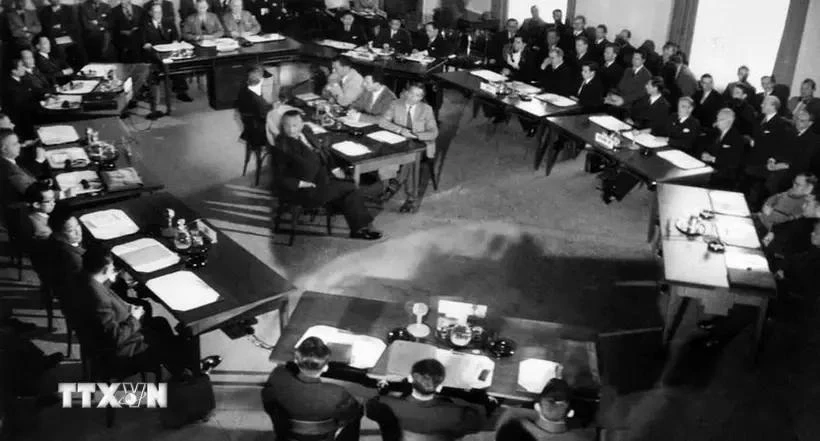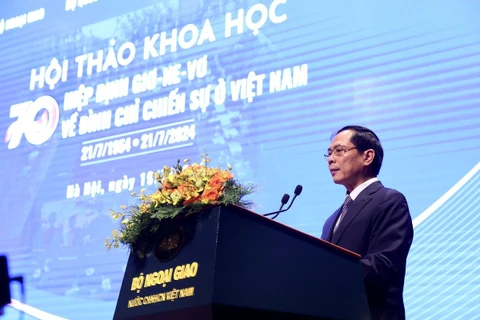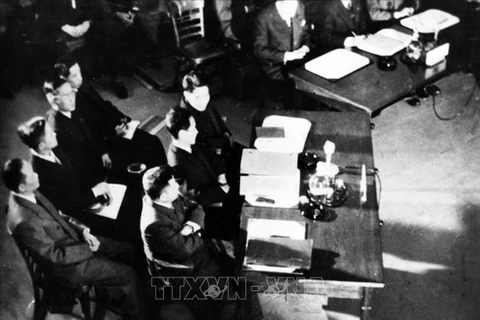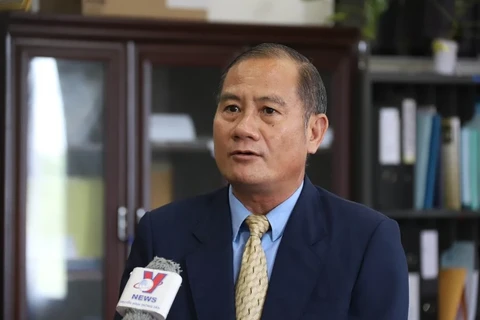
Vientiane (VNA) – Vanxay Tavinyan, Vice Chairman of the Lao People’s Revolutionary Party (LPRP) Central Committee’s Commission for Propaganda and Training, has emphasised the epochal significance of the 1954 Geneva Agreement on the Cessation of Hostilities in Vietnam, as well as the role of the Communist Party of Vietnam (CPV) in the signing of the document.
In an interview granted to the Vietnam News Agency (VNA), Tavinyan, who is also Editor-in-chief of Pasaxon Newspaper of Laos, said the signing marked a milestone during the Vietnamese people’s long, arduous resistance war in the 20th century.
He also called it an imprint of Vietnam’s revolutionary diplomacy, saying it contributed to socialism building in the north and southern liberation efforts, towards national reunification.
The agreement not only affirmed Vietnam as an independent, democratic and peace-loving country, but also demonstrated the intelligence, traits and patriotism of the Vietnamese people.
It was the biggest victory of the Democratic Republic of Vietnam (now the Socialist Republic of Vietnam) as for the first time, France and other participating countries pledged respect for the Southeast Asian nation’s sovereignty, independence, and territorial integrity, and no interference in its internal affairs, the official said.
Tavinyan also hailed the agreement as a victory of patriotism, President Ho Chi Minh’s sound revolutionary guidelines, and of international solidarity.
The Editor-in-Chief commended Vietnam’s achievements over the past nearly 40 years of reform, during which historical lessons, including those drawn from the 1954 Geneva Conference, have been brought into full play.
He praised the CPV’s leadership during the fight against French colonialists, culminating in the globe-shaking Dien Bien Phu Victory in 1954.
Together with the Dien Bien Phu Victory, the Geneva Agreement put an end to the old-style colonial rule that lasted nearly 100 years in Vietnam, he said, describing it as a common victory of the three Indochina countries of Vietnam, Laos and Cambodia, and peace lovers worldwide.
The first multilateral international treaty that Vietnam had participated in negotiation, signing and implementation, the Geneva Agreement affirmed the country’s role in the international arena, he said, adding that during the talks, Vietnam continuously received the support from international friends, including Laos, Cambodia, other socialist countries and peace lovers all over the world.
Tavinyan also stressed the active and responsible contributions of the Vietnamese Party, State and people to international efforts for peace, independence, democracy and progress in the world./.






















